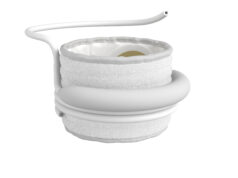 Saranas has announced that it has reached the midpoint for enrolment in SAFE-MCS, a multicentre, single arm, open-label clinical trial evaluating the safety of complex high-risk percutaneous coronary intervention (PCI) using mechanical circulatory support (MCS) and surveillance with the Early Bird bleed monitoring system.
Saranas has announced that it has reached the midpoint for enrolment in SAFE-MCS, a multicentre, single arm, open-label clinical trial evaluating the safety of complex high-risk percutaneous coronary intervention (PCI) using mechanical circulatory support (MCS) and surveillance with the Early Bird bleed monitoring system.
The Early Bird bleed monitoring system is the first and only US Food and Drug (FDA)-approved bleed detection system. It was launched in 2019 following a de novo classification by the FDA. The device monitors and detects endovascular bleed complications through a novel application of bioimpedance sensors.
“As the use of MCS increases worldwide, the SAFE-MCS study will bring important insight on what the true rate of bleeding events are during those procedures, and how to improve safety outcomes of patients undergoing complex and high-risk interventions,” stated Philippe Genereux (Morristown Medical Center, Morristown, USA), co-principal investigator of SAFE-MCS.
SAFE-MCS will enrol up to 265 patients across multiple centres in the USA. The primary endpoint of the study is incidence of access-site related Bleeding Academic Research Consortium (BARC) type III or V bleeding. Patients undergoing complex high-risk PCI with mechanical circulatory support (MCS) via Impella and transfemoral arterial approach are enrolled as study participants. The Early Bird bleed monitoring system is used in the ipsilateral femoral vein to monitor bleeding events after MCS removal.
“Timely identification of bleeding events is crucial in preventing adverse events that can have serious consequences for patients. The data from SAFE-MCS will provide meaningful guidance on how real-time monitoring can improve clinical outcomes through a proactive approach to managing bleeding risk,” said Babar Basir (Henry Ford Health System, Detroit, USA) and co-principal investigator of SAFE-MCS.
Saranas is partnering with the Cardiovascular Research Foundation (CRF) Clinical Trials Center to assess cost savings associated with the Early Bird in the SAFE-MCS trial. “As health systems are highly sensitive to the burden of incremental costs from procedural complications, it is more important than ever to quantify the economic value of innovative technologies like early bleed detection,” said David Cohen, director of Clinical and Outcomes Research at CRF (New York, USA).
Approximately one in every five patients will experience a bleeding complication during large-bore endovascular procedures such as transcatheter aortic valve implantation (TAVI), endovascular aneurysm repair (EVAR), and percutaneous MCS.










